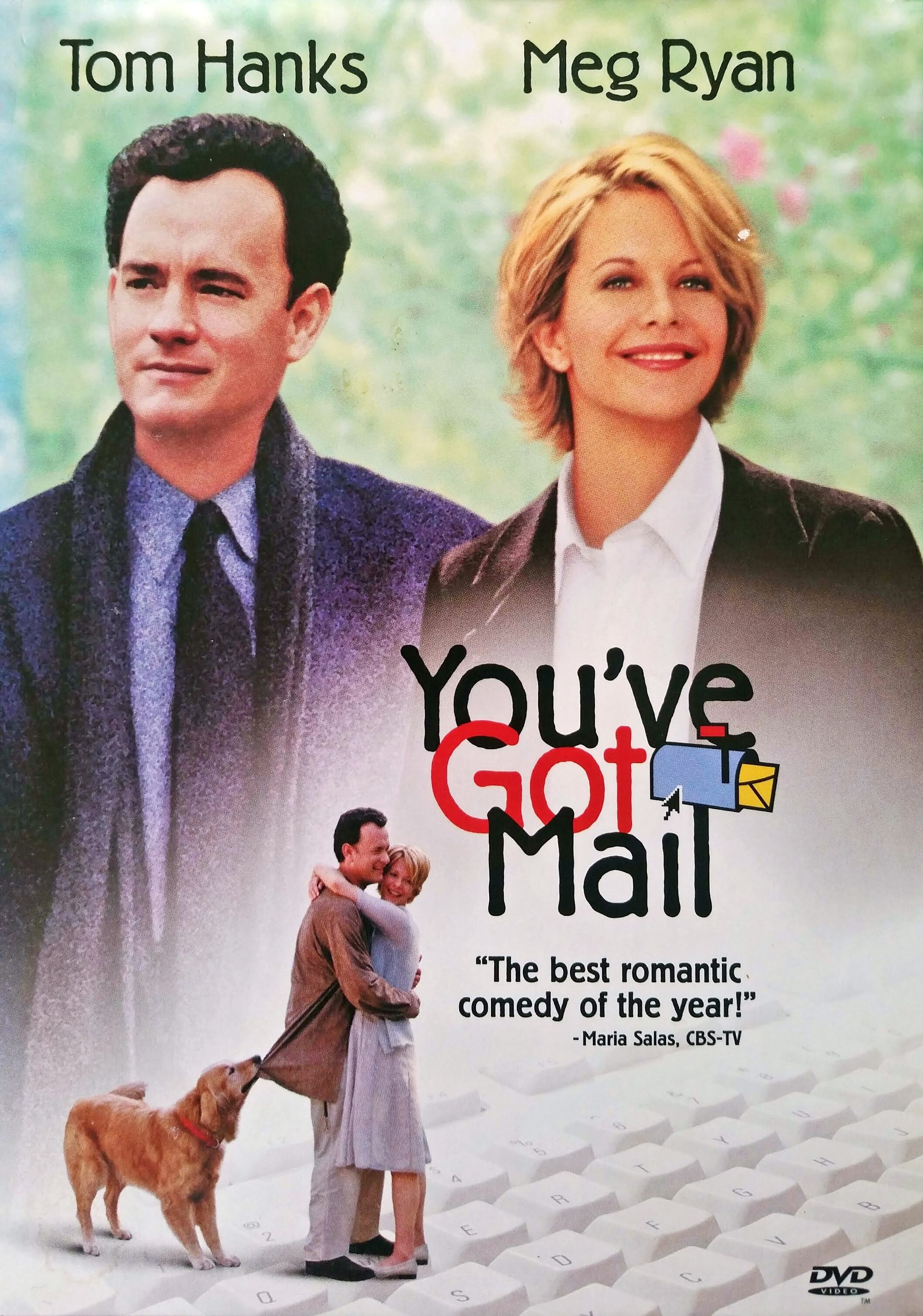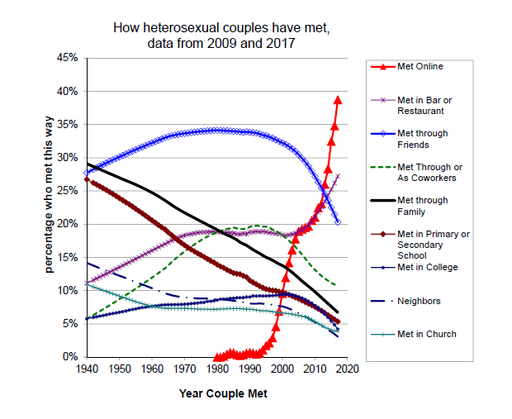Exponential Change
Technology is developing at a faster pace every year in true exponential form.

In 2004 Blockbuster had its best year - it had 9,000 stores and earned $5.9 billion in revenue. For me, 2004 was the year I got my driver’s license. Friday nights usually involved a drive to pick up a few Little Caesar’s pizzas, followed by pacing the outer aisles of new arrivals at Blockbuster. Pair this with driveway basketball and a poker or halo tournament, and life was good. (cover image a photo by Solen Feyissa on Unsplash)
Embed from Getty ImagesFast forward less than two decades. Blockbuster no longer exists, and we have collectively coined the term ‘binge watching’ where we can all sit down on the couch to watch entire 10 hour seasons of Netflix content. Pizza arrives at the door with the click of a button on our phones. The only remnant of the Blockbuster days are the household staple DVD/CD binders with some combination of The Sixth Sense, Legally Blonde, or Wedding Crashers.
In 1993, Microsoft’s Encarta sold 350,000 of its encyclopedia CD’s, making it the best selling encyclopedia CD-ROM. In 1995 younger me was completing a science project on Windows 95 searching cheetahs on Encarta. A generation later and it is only fitting that a Google search and Wikipedia article lead me to the very article outlining Encarta’s demise.
Embed from Getty ImagesRoad trips during McDonalds monopoly season were another highlight of the summer of old. I remember assisting in the navigation with the help of the Rand McNally Atlas tucked away in the back of the passenger seat. MapQuest arrived a few years later, and printed directions augmented the atlas. Less than twenty years later, the idea of printing out directions is the latest subject of humor in Progressive’s ‘turning into your parents’ series.

Remember the computer games from 20 years ago?
- Clicking into the 2D general store to enter text input boxes to gather supplies before heading out on the Oregon Trail.
- Upgrading civilizations through prehistory in Age of Empires.
- Repeatedly typing Rosebud to build a baller house in the Sims.
- Derailing a custom built roller coaster in Roller Coaster Tycoon.
- Passing the time in class with phoenix on the TI 83 plus.
Just watching some of the old gameplay footage of Spyro brought me right back to sharing the couch and PlayStation controller with my brother.
I remember senior year of high school getting my upcoming college .edu email address which was required to create a Facebook account. Just six years earlier I would have been walking down the street to a friend’s house to listen to Nelly’s Country Grammar album while we dialed up onto AIM. Social Media today certainly does not require a 60 second dial up connection.

All of these examples - while nostalgic (and indicative of my very lucky upbringing) - underscore just how much technology has changed. In less than twenty years, fundamental parts of childhood, high school, and college are moments in time as much of the technology has evolved to a point beyond recognition. It was only ten years ago that ‘Cabs Are Here’ became the joke when it was time to go to the bar on Friday night.
Embed from Getty ImagesThis technology has such an impact on how we all spend our time - whether that be communication, news, entertainment, driving, researching, or learning. Maybe it’s just me, my millennial experiences, or the current pandemic, but it seems that technology is not simply evolving in a linear fashion. Technology is developing at a faster pace every year in true exponential form.
Our History of Technology Trends
Beyond anecdotes and nostalgia, the data also bears out this trend for exponential growth.
The iPhone was released in 2007. There were no ‘apps’ before that - just Nokias, Razors, and Blackberry’s - with each number representing up to four characters in a text message.
Email started to become popular in the late 90’s when ~10 million people had a free email account Today an estimated 3.9 billion people have free online email.

Tom Hanks and Meg Ryan introduced us to the precursors of online dating via email in 1998. By 2014 Tinder was registering one billion swipes *per-day*. Just this week, Bumble filed its S-1, and this graph sums up the prevalence of online dating quite well:

We often think of consumer applications when it comes to exponential technology, but the commercial implications are just as prevalent and the underlying drivers for much of the growth. The six largest U.S. companies by market capitalization are all tech companies (including Tesla). All were created in the last 45 years.
GDP bears out these exponential growth trends. Inflation adjusted world GDP was ~$12 Trillion in 1961. In 2017 that number was nearly 7x higher at ~$80 Trillion (~3.2% CAGR).
Zoom out a bit in history just a bit and the compounding increases of GDP shows an even greater scope of change. It may as well be a vertical line after 1950 when you look over two millennia.
As a human society it took us over one hundred thousand years to move from nomadic hunter/gatherers to an agrarian society ~12,000 BC. We only invented electricity ~200 years ago. The computer came in the 1950's and the internet became mainstream just 30 years ago. Today 30 billion devices are connected to the internet, and we have a constellation of satellites circling our planet providing global telecommunication infrastructure.
Leaders Highlighting Our Pace of Change
This idea of exponential growth and growing concern for technology are nothing new. Many leaders and experts are making claims (with formalized laws and data to back them) that highlight just how real this exponential growth is in technology.
Andrew Yang is currently running for mayor of New York City and was a vocal candidate in the 2020 presidential election. He often speaks out about the rise of automation, its impact on jobs, and our society’s need to look at new forms of capitalism and universal basic income as artificial intelligence becomes more prevalent. His book in 2018 - The War on Normal People - gives great insight and data about how we have arrived at this point and what the next few years and decades have in store for technology.
Cathie Wood is one of the most successful investors of the last few years. She is the founder, CEO, and CIO at ARK Investment Management. Her company has skyrocketed in popularity as she correctly predicted the success of Tesla and Bitcoin and each of her ETF’s are among the most successful of the last three years. This year, Catherine Wood has sounded the alarm on any companies not investing in technology and artificial intelligence in this next decade.

Speaking of Tesla, we all know Elon Musk and the meteoric rise of Tesla and SpaceX in the last year. His rise is well documented, and he has not been secretive about his thoughts with AI and his desire for interplanetary travel. His work on Neuralink may carry out his own prophetic warnings of humans becoming the biological bootstrappers for AI.
Nick Bostrom is a PhD and professor of philosophy at Oxford University and has written numerous books and papers. He is one of the original authors of the notion that we could be living in a computer civilization. His abstract from his 2003 paper sums it up quite succinctly:
This paper argues that at least one of the following propositions is true: (1) the human species is very likely to go extinct before reaching a “posthuman” stage; (2) any posthuman civilization is extremely unlikely to run a significant number of simulations of their evolutionary history (or variations thereof); (3) we are almost certainly living in a computer simulation.
Nick Bostrom is a frequent speaker and some of his TED Talks eloquently outline - and give warning to - just what might happen when artificial intelligence becomes prevalent.
Ray Kurzweil is a successful and influential author, inventor, and futurist. His books have appeared on multiple best seller lists, and he was an early inventor of computer text recognition technologies. His book The Singularity is Near (published in 2005), outlines a multitude of technological and biological predictions that continue to hold true. One of his main themes is that the 2020’s and 2030’s will see a surge in our understanding of human brain cognition, biology, and nano robots.
It seems more than coincidental that Elon Musk is pursuing Neuralink and Cathie Wood’s Genomics ETF ARKG is one of the best performing ETF’s of the last year - up over 200% since 2020.
Laws of Technology Improvement
These leaders have developed and refer to principles and laws that have continued to bear out over the last several decades.
Moore’s Law, coined by Gordon Moore of Intel, is one of the most referenced laws in exponential growth. In 1965, Gordon Moore was a co-founder of Intel and predicted that the number of transistors on a chip would double every 18-24 months. This has help true all the way through 2020. There is now considerable research now on quantum computing which may provide the next generation of compute performance growth.
Embed from Getty ImagesWright’s Law is one that ARK Investments gives great insight into and extrapolates this analysis for batteries and the rise in Electric Vehicles.
While studying production costs during the 1920s, Theodore Wright determined that for every cumulative doubling in the number of airplanes produced, manufacturers realized a consistent cost decline in percentage term. (via Ark Invest)
Metcalfe’s Law comes up in the valuation of social networks, protocols, and extrapolating marketplaces. It outlines that every new connected user of a system adds a multiple into the effect of the system So two people is one connection, five is ten connections, twelve makes 66, and so on (n(n-1)/2). Tyler Winklevoss references this law in offering insight on the future valuation of Bitcoin.
Data Volume Growth
Today we see an explosion in data. The first three paragraphs in this article from Datamation are mind boggling:
The world's information now doubles about every year and a half
And the above article is from 2013. In 2020 an estimated 59 zettabytes were created. And again the graph here follows a hockey stick - up and to the right. We are on track to produce ~149 zettabytes of data in 2024.
And how much data is a zettabyte? Well a single exabyte could hold all data in the Library of Congress 3,000 times over. A zettabyte represents 1,000 exabytes. This is an even greater rate of change than Moore's law, which fundamentally altered everything about technology.
Embed from Getty ImagesWe have these laws, trends, and convergences of data proliferation, semiconductor and chip advances, and seemingly unbounded levels of compute and storage with cloud computing. Combined with Artificial Intelligence (AI) on top of this and we see a very compelling case for rapid change.
AI Advances
AI follows a similar growth trajectory in the sense that the more data to feed in to the algorithm, typically the better it performs. One recent advance was GPT-3. GPT-3's capacity increased by more than two orders of magnitude over GPT-2. GPT-3 has 175 billion (with a B) machine learning parameters. So what does this mean? There are a range of early examples of just how powerful this algorithm is - ranging from automatic chatbot generation, essays that rival high school English students, and one of my favorites - a literal text to code generator.
I just built a *functioning* React app by describing what I wanted to GPT-3.
— Sharif Shameem (@sharifshameem) July 17, 2020
I'm still in awe. pic.twitter.com/UUKSYz2NJO
Our large technology companies are already capitalizing on these trends, and will have a tremendous competitive advantage going forward.
Tesla captures more than 3 million miles of driving data every day (as of 2018).
Alexa is listening to an ever growing share of the population. As of January 2018, there were an estimated one billion voice searches per month.
Google processes 70,000 search queries *per second*Embed from Getty Images
The exponentiality is everywhere. And all of this digitization doesn't seem to be slowing down anytime soon.
What Happens Next?
So what happens next? That may be the million/billion/trillion dollar question depending on who is asking or answering. If it is anything like 2020... well that's something we won't try to think about for a number of reasons.
It really is hard to fathom sometimes just how much change could come. We all use and engage with tools and platforms like Twitter, Email, Facebook, Instagram, Spotify, and YouTube. But growing up, no one ever taught us how to send a tweet, what sort of content to share, how to caption an Instagram post, or how to balance and aggregate our various news feeds and sources.
Embed from Getty ImagesIt is just as hard to think of all of the solutions that could prevent the problems we may face in the future. In all of human history, terrible things have taken place. Human greed seems to be a constant, and when machines are introduced and technology accelerates so fast, we perhaps find ourselves scrambling to keep up as any slight bias can scale so quickly given the power and network effects of computers and the internet.
Embed from Getty ImagesSo is more technology the answer? Perhaps we could use AI technology to further regulate technology - much like AI scans social networks for inappropriate content (many TED Talks about these ideas). Or we introduce more atomic change tracking and version control frameworks to bills and laws. Could we combine new technology paradigms and regulations to ensure ongoing counter-balancing of algorithms? Do we need to revisit the various social contracts and our definitions of different aspects of capitalism (channeling Andrew Yang here)?
Whatever the solutions are, the next decade will see untold progress. And of course there is much to be excited for. We are living in quite possibly the most extraordinary time in human history. We may see more change in our lifetime than the sum of previous generations. On our desks and in our hands are devices that quite literally have access to nearly all information ever produced in humanity. We can be more connected, more curious, more engaged, and more resourceful than ever before. Many questions are a well constructed google query away from an answer. We may see humans on Mars or another Moon landing in our lifetime.
Whatever it is that comes next, I'm excited for it, and here's to more hope for 2021.
Embed from Getty Images




Comments ()